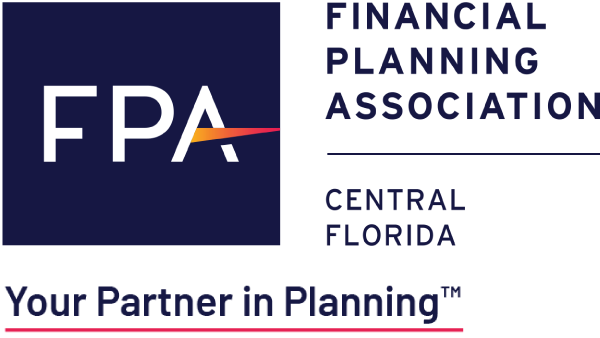
Working Through Tough Financial Issues with Adult Children
 If you have grown children, chances are you have first-hand experience wrestling with the complicated, often delicate family dynamics of helping a grown child financially while still trying to meet your own financial obligations and goals.
If you have grown children, chances are you have first-hand experience wrestling with the complicated, often delicate family dynamics of helping a grown child financially while still trying to meet your own financial obligations and goals.
Indeed, those dynamics are familiar to a majority of American families. In a recent poll, NerdWallet found that 80 percent of the U.S. adults it surveyed who have children aged 18 and older have helped their adult kids cover their expenses.
Oftentimes, these situations present families with emotionally and financially charged money decisions that can be particularly difficult for the parents, who often find themselves forced to juggle their own financial priorities with the needs of their child. “Almost invariably, parents are going to be the financial backstop for their adult children,” says FPA member David W. Demming, CFP®, who heads Demming Financial Services in Aurora, OH, “because that’s where the money tends to be.”
This is the second of two articles discussing the formidable financial issues that the so-called Sandwich Generation faces. Part 1, “Working Through Tough Financial Issues with Aging Parents,” addresses one side of the sandwich, the financial issues that may arise between aging parents and their grown children. Here in Part 2, we look at the other side of the sandwich — the sticky issues and difficult either-or financial questions that situations between parents and their adult children often conjure, with suggestions for how to address them in a balanced, equitable and practical way.
The issue: As survey after survey suggests, grown children today are increasingly reliant on their parents for financial support, whether it’s for help paying off school loans or other debts, a kid’s college tuition or other bills, supplementing their income, paying for insurance, or providing them (and, perhaps, their children) with a place to live.
Ideally, adult children would have the wherewithal to resolve their financial issues without leaning on their parents for aid. And in situations where the adult child can’t resolve a financial issue on their own, ideally the parents would be able to offer support as needed — and without compromising their own financial standing. But we don’t live in a perfect world. Grown children may be adults, but they aren’t always able to stand on their own financially. And their parents, as well-intentioned as they may be, may not have the inclination or the financial resources to provide financial support to a grown child, particularly if doing so hampers their ability to meet their own financial goals and obligations.
Trade-offs: Supporting a grown child often raises difficult choices. For members of the older generation who choose to provide the younger generation with financial support, the consequences of that choice can be significant. For example, according to an analysis by NerdWallet, parents who cover an adult child’s living expenses for five years and borrow money for college tuition will miss out on roughly $227,000 in retirement savings. As NerdWallet goes on to note, “Any amount a parent gives their adult child that they could otherwise save might be derailing their retirement plans. Suppose a parent gives an adult child an allowance of $200 a month for five years. That $12,000, invested in a retirement account earning 6 percent interest, would grow to almost $40,000 by the time the parent retires.”
How much could the financial assistance you provide a grown child cost you? NerdWallet offers a calculator at https://www.nerdwallet.com/blog/study-lifetime-cost-supporting-adult-children/.
Cash, conscience and choices: Even parents who have the financial resources to comfortably provide financial support to a grown child without compromising the ability to meet their own financial obligations and aspirations may choose to limit the support they provide, in order to avoid perpetuating the adult child’s financial reliance on their parents, while also hopefully helping them find financial self-sufficiency.
When faced with a decision about whether to provide a grown child with financial support, it’s important for the parent(s) of that child to realize that even if they have the resources to provide support, that doing so might be in neither the child’s best interests nor their own. “There’s a big difference between ‘can’ and ‘have to’” in those situations, notes Demming.
Also weighing into the decision: Is the support needed to address a genuine financial crisis or a one-time situation that’s largely out of the child’s control, such as a job lay-off or a medical crisis? Or is it part of a broader issue, a pattern of irresponsible financial choices by the grown child? If it’s the latter, the parents of the grown child may want to explore ways to steer the child to consistently make better, more financially responsible choices, because as Demming notes, there can be a fine line between helping and enabling a person. “You need to know when to say when.”
CERTIFIED FINANCIAL PLANNER™ and FPA member Kristin Sullivan of Sullivan Financial Planning in Denver, CO, describes just such a scenario: “Long ago I worked with an elderly couple whose 40-something-year-old children were always asking them for money to help out with emergencies. The adult kids never had any savings due to lifestyle choices they had made, yet their grandkids always had the latest iPads, etc. Although my clients could afford to make the gifts, they felt uncomfortable, like they were enabling the middle-aged kids — and they were right! So, I told them that they could easily make $5,000-per-year gifts to each of their kids, but no more. They could tell their kids their financial planner said so. It wasn't totally true, but it allowed my clients to make me the bad guy and gave them ‘permission’ from an objective third party to do what they wanted to do all along.”
Communicate to get clear on a plan: Whether the answer is no, yes or maybe, it’s important to communicate openly right from the outset to set clear guidelines on the extent to which the parents are willing to help, and for how long, so expectations are clear on both sides. Demming refers to this as “the line in the sand,” where the parents are explicit about the type of financial support they will provide (how much, for how long), their expectations for the child to reimburse them for that support (terms), and the consequences for the child not complying with those terms. Specifying repercussions for failure to meet the terms is important to reinforce responsibility and accountability in the grown child — “so they know there are limits and there are consequences to their actions.”
“Talk about how this all will go down,” suggests Demming, then put the plan or guidelines in writing, and be sure both sides agree to it.
If the adult child is living at the parents’ home, part of that plan might be to let them assume household responsibilities and/or pay rent to give them a sense they’re contributing in exchange for the roof over their head.
In drawing a line in the sand, parents also need to be clear about their limits — that they are willing to say no to certain things, especially if they have negative financial ramifications for the parents, such as tapping home equity or a retirement account to supply funds to support a grown child. Here’s where having a well-diversified base of assets can provide flexibility to parents who do choose to offer financial support to a grown child. Rather than taking on additional debt or facing additional tax consequences for premature withdrawals from a retirement plan, for example, parents instead can avoid those pitfalls by drawing funds from a cash reserve or emergency fund to provide support, notes Demming.
Take equitability into account. If you have multiple adult children, and decide to provide financial assistance to one of them, Demming suggests factoring equitability into the equation by asking yourself, “’If I’m helping A, should I also help B?’” If the answer is yes, then it’s a matter of figuring out how to make it equitable with any other children who are in the picture.
In especially sticky situations, get an experienced third party involved. A financial professional not only can help formalize a plan for supporting an adult child financially, they can also play the role of objective arbiter and referee if family dynamics make figuring things out too difficult for the parties themselves, or, as in the case referenced earlier by Sullivan, the parents need a “fall guy” to whom they can point when asked to justify a decision. To find a CERTIFIED FINANCIAL PLANNER™ in your area, check out the Financial Planning Association’s searchable national database at www.PlannerSearch.org.
Because ultimately, “love does not mean letting people do whatever they want,” says Leon C. LaBrecque, CFP® who heads LJPR Financial Advisors in Troy, MI. “Love means letting them be their best.”

